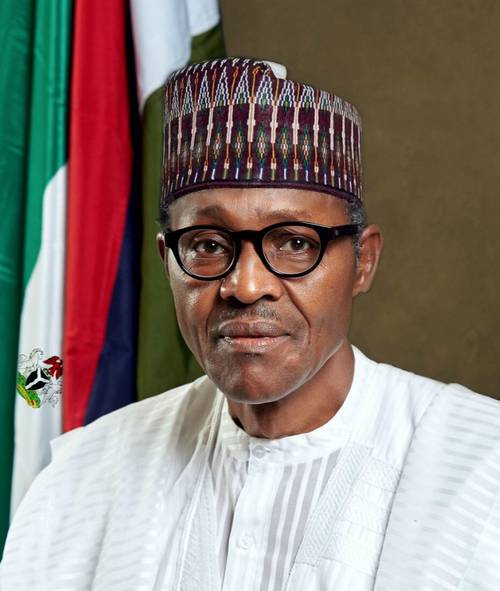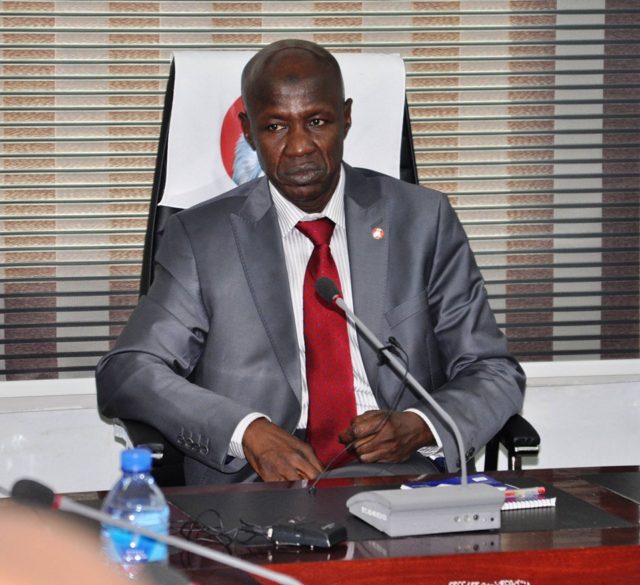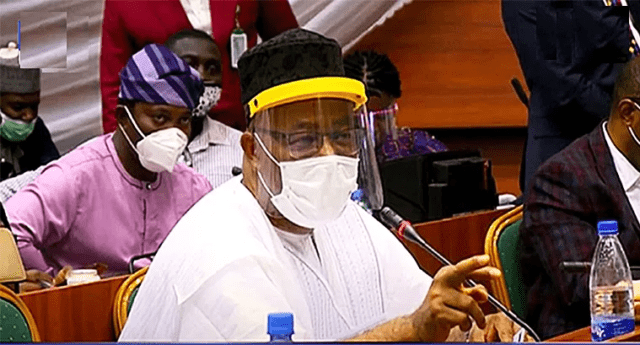Political Issues
Appropriateness of Fighting Back At Corruption With Strong Political Will -By Isaac Asabor
it is expedient to say that the government needs to empower both state and non-state actors who are working against corruption. Again, if there has been selective application of laws as widely alleged by critics of the fight against corruption, it should end, and the fight against should be championed by the top leadership so that the public can appreciate government efforts more than is the case now.

There is no denying the fact that political leadership and commitment to fight corruption at the highest levels is one of the most significant prerequisites for success in the fight against corruption. With the establishments of the Independent Corrupt Practices and Other Related Offences Commission (ICPC) and its related anti-corruption body, Economic and Financial Crimes Commission (EFCC), it is evident that there has been a concrete progress in establishing the legal and institutional framework to tackle corruption, but unfortunately, there is a continued absence of a clear demonstration of political will to fight corruption.
In some respects, there has even been opposition to and hindrances of the anti-corruption process, and actions that may demonstrate a lack of political will to bring the process further. The foregoing, no doubt, informs the saying that “Corruption Is Fighting Back.”

A professional colleague once said “Corruption is what Nigeria should allow to fight back, after a serious fight, it would one day raised its itchy fingers symbolizing its surrender to superior fight from anti-corruption agencies and Non-Governmental Organizations, and well-meaning Nigerian leaders that are strongly averse to it”.
Without any iota of exaggeration, corruption is truly fighting back when analyzed from the perspective of the recent events that made screaming headlines in the media, particularly headlines that anchored stories on the predicament of Mr. Ibrahim Magu, former acting chairman of the EFCC, and what is now opprobriously been referred to as “NDDC-Gate”.
To my view, it appears the quote whose authorship is credited to Rigoberta Menchu, a Nobel Prize Laureate, has not being internalized by the lawmakers at the National Assembly. Menchu said, “Without strong watchdog institutions, impunity becomes the very foundation upon which systems of corruption are built. And if impunity is not demolished, all efforts to bring an end to corruption are in vain.”
Against the foregoing background, if you ask me whether the lawmakers were able to burst the minister of the Niger Delta, Senator Godswill Akpabio’s bubble, on the day he honored the invitation to the House of Representatives Committee on the Commission for an investigative hearing on the alleged financial recklessness at the NDDC, I will say a capital NO! You may have asked why I chose to answer the question in the negative. The answer cannot be farfetched as virtually all Nigerians that watched the footages of the probe by the Committee that was primarily constituted for the probe were disappointed as they unarguably smelt a rat.

For the sake of clarity, it is germane to, at this juncture recall the crux of the matter that made virtually all Nigerians to doubt the collective political will of the lawmakers in ensuring that the depth of pandemic-like corruption in the NDDC is reached.
To say that Nigerians are collectively in a worrying disposition at the moment as a result of the way and manner Akpabio was probed can be said to be an understatement. They were (and still) very angry. For instance, before the House Committee, the minister alleged that the lawmakers were the biggest beneficiaries of the corruption that has become the sad story of the NDDC.
Hear him, “Who are even the greatest beneficiaries of these contracts? It’s you people nau,” Akpabio told the House Committee chaired by Hon Thomas Ereyitomi. “Because if you look at your chairman…”
“Honourable minister, that’s okay,” Ereyitomi interrupted the minister as he intermittently hit the the gavel on his desk.
However, a gutsy Hon Boma Goodhead was having none of Akpabio’s allegations and demanded to know what were the benefits or rather the contracts given to members of the national assembly.
“I just told you that we have records to show that most of the contracts in the NDDC are given out to members of the national assembly, but you don’t know about it, but the two chairmen know,” Akpabio insisted.
“It’s okay. It’s okay,” Ereyitomi kept pleading desperately as Akpabio and Goodhead engaged in a heated debate.
“Honourable member..Honourable minister, it’s okay. That is okay…it’s okay…Honourable minister off (sic) your mic,” Hon Ereyitomi, who represents Warri federal constituency, was close to tears now.
To many Nigerians, it was inadvisable to interrupt the minister with “It is okay” as what the minister was saying at the hearing was of public importance. As you read this piece, many Nigerians are still asking, why was the minister prevented from pouring out his mind when it was obvious that he was ready to spill the beans at the public hearing that was primarily constituted to unravel the deepening depth of corruption in the NDDC?
Concerned Nigerians are unanimous in their views that there is nothing okay about preventing the world from knowing the minutiae of Akpabio’s records and what he was about saying on some of the lawmakers’ involvement in the monumental sleaze that has now characterized the Commission in the recent time, particularly in the era when it has being subjected to Forensic Audit.
At this juncture, it is expedient to say that the government needs to empower both state and non-state actors who are working against corruption. Again, if there has been selective application of laws as widely alleged by critics of the fight against corruption, it should end, and the fight against should be championed by the top leadership so that the public can appreciate government efforts more than is the case now.
The public needs to be reminded that since corruption affects everyone, fighting it is a national issue that contributes to the government’s vision of zero tolerance for corruption. More importantly, ending corruption will mean improved efficient and effective service delivery.
















